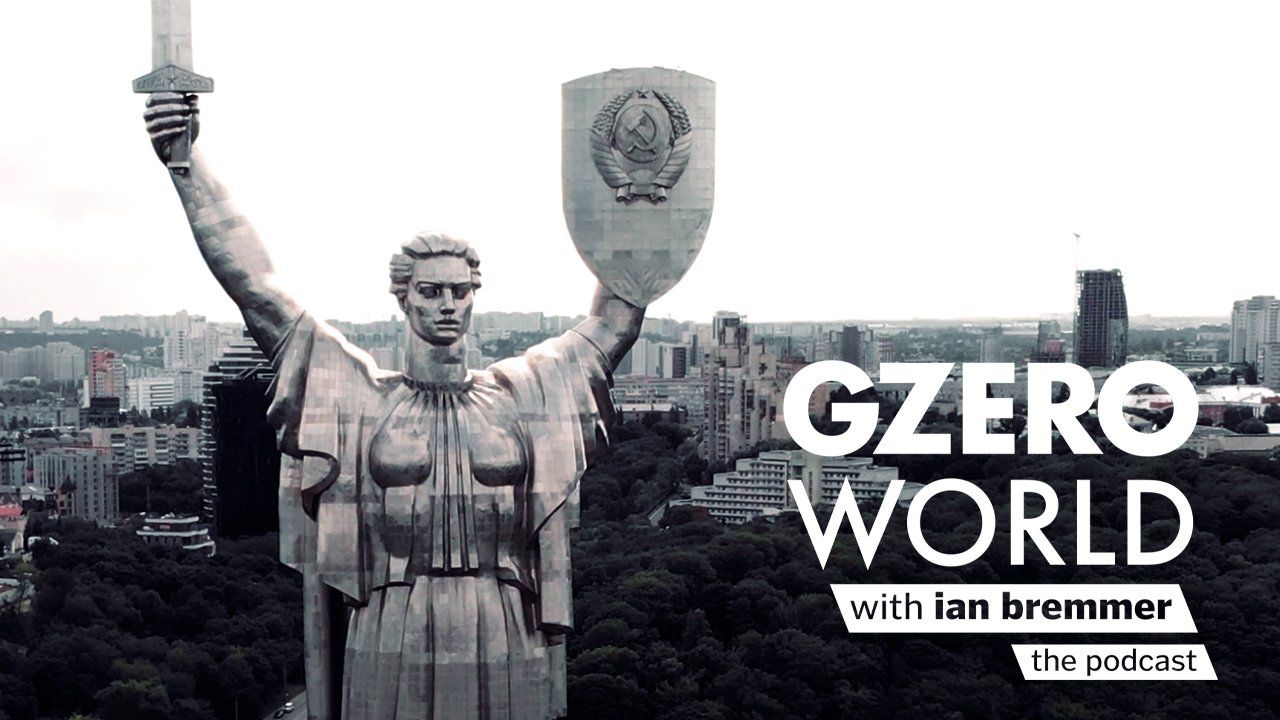GZERO World with Ian Bremmer Podcast
August 17, 2024
Listen: Ukraine is at a crossroads. It's been more than two years of brutal, deadly conflict. Despite some shifts to the front lines, neither side has a clear path to military victory, and support for the war effort is flagging amongst Ukrainians. Is it time for President Zelensky to think about negotiating an end to the war? On the GZERO World Podcast, Ian Bremmer sits with Yaroslav Trofimov, Wall Street Journal Chief Foreign Affairs Correspondent and author of "Our Enemies Will Vanish," about the challenges Ukraine faces, including waning morale and difficulties in military recruitment. Although recent polls indicate that Ukrainians are more receptive to peace talks, Trofimov warns that Russia’s endgame remains unchanged—total erasure of Ukrainian national identity. With the painful history of Soviet-Era aggression still fresh in the national memory, most Ukrainians are resolute that they won’t accept compromise unless it means the return of all internationally recognized land. Trofimov cautions that the absence of security guarantees by NATO and Western allies means Russia's assault on Ukraine is far from over.
Though Bremmer and Trofimov spoke in July before Ukraine’s incursion into Russia’s Kursk region, the larger picture remains bleak: no clear path to ending the war, hundreds of thousands of lives lost, and nearly 20% of Ukraine still under occupation. And if Donald Trump wins a second term, continued US military support is uncertain. So, is it time for Ukraine to negotiate with Russia for a swift end to the war? If not, what will be the cost of all this suffering?
Subscribe to the GZERO World Podcast on Apple Podcasts, Spotify, Stitcher, or your preferred podcast platform, to receive new episodes as soon as they're published.
From Your Site Articles
- Podcast: Russia's view of the Ukraine war: a Kremlin ally's perspective ›
- Why the world isn't fair: Yuval Noah Harari on AI, Ukraine, and Gaza ›
- Is Ukraine running out of time? Former US ambassador Ivo Daalder sizes up the Russia-Ukraine war ›
- Tucker Carlson returns: fact-checking his Ukraine episode ›
More For You
Americans are moving less — and renting more. Cooling migration and rising vacancy rates, especially across the Sunbelt, have flattened rent growth and given renters new leverage. For many lower-income households, that relief is beginning to show up in discretionary spending. Explore what's changing in US housing by subscribing to Bank of America Institute.
Most Popular
Walmart sponsored posts
Walmart’s commitment to US-made products
What's Good Wednesdays
What’s Good Wednesdays™, February 4, 2026
World Central Kitchen staff hand out free soup in a neighbourhood that experiences electricity and heating outages following recent Russian attacks on Ukraine’s civilian infrastructure during subzero temperatures in Kyiv, Ukraine February 3, 2026.
REUTERS/Thomas Peter
1,170: The number of high-rise buildings in Kyiv that were left without heating following a barrage of Russian attacks last night on Ukraine’s capital and its energy facilities, per Kyiv Mayor Vitali Klitschko.
Protesters gather during a candlelight vigil, and interfaith prayer at Fort Lauderdale-Hollywood International Airport as airport workers and faith leaders rally calling on the federal government to extend Temporary Protected Status for Haiti on Jan. 28, 2026.
Diaz/Miami Herald via ZUMA Press Wire
Over the past five years, Haiti has endured extreme political turmoil, escalating violence, and one of the world’s worst humanitarian crises.
Microsoft unveiled a new set of commitments guiding its community‑first approach to AI infrastructure development. The strategy focuses on energy affordability, water efficiency, job creation, local investment, and AI‑driven skilling. As demand for digital infrastructure accelerates, the company is pushing a new model for responsible datacenter growth — one built on sustainability, economic mobility, and long‑term partnership with the communities that host it. The move signals how AI infrastructure is reshaping local economies and what people expect from the tech shaping their future. Read the full blog here.
© 2025 GZERO Media. All Rights Reserved | A Eurasia Group media company.
